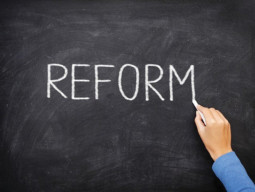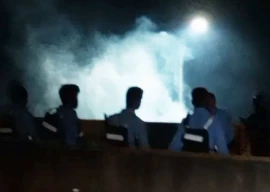
The 13th National Assembly during its 50 regular sessions passed 134 bills, including 18 private members’ bills, over the course of 521 sittings. In the flurry of activity, the assembly witnessed historic changes, dramatic dialogue, and even crucial shortfalls.
The five-year tenure proved to be a hectic time-frame for legislation. Significant strides and shortcomings went hand in hand. Out of the total bills passed, 81 became acts of Parliament. Fifty-six sought amendments in the existing laws. These included the 18th and 20th constitutional amendment bills, which helped restore the 1973 Constitution, ensure provincial autonomy and give Pakistan a consensus mechanism for civilian transfer of power democratically, besides the formation of a full five-member Election Commission of Pakistan.
This assembly also stood out for its pro-women legislation, passing treasury and private members’ bills against domestic violence, harassment at workplace and public places, anti-women practices, and elevating the status of the commission on women. A woman speaker was elected for the first time in Pakistan’s parliamentary history.
Furthermore, unlike the past assemblies, the lower house witnessed a healthy trend of passing private members’ bills. Overall 189 private members bills were introduced in the lower house. Of them, 18 were passed.

Out of a total of 243 resolutions moved in the lower house in the five years, 85 were adopted. Six resolutions on women rights and five each on minorities’ rights and blasphemy were adopted. Similarly, resolutions were also adopted on a host of issues, ranging from the Balochistan situation to the increase in prices of petroleum products and obscenity on cable TV.
A report published by the Free and Fair Election Network on Friday said that the National Assembly saw a momentous change in the rules of procedure to allow standing committees to scrutinise ministerial budgetary proposals before they were made part of the federal budget.
And yet, the assembly proceedings were far from perfect. It must be noted that no significant work could be done on electoral reforms. The local bodies governing system remained dysfunctional. Furthermore, the government also dropped a constitutional amendment – the 23rd Amendment Bill – seeking an increase in the number of seats for minorities in Parliament.
Moreover, the ruling Pakistan Peoples Party and Pakistan Muslim League-Nawaz could not agree on the formation of a National Accountability Commission to replace former president Pervaiz Musharraf’s relic, the National Accountability Bureau. In the same vein, a bill to ensure the creation of the much debated Bahawalpur Janoobi Punjab province also lapsed because the government did not table it before the National Assembly, despite approval of the upper house.
The four bills to tackle terrorism were passed only in the fifth parliamentary year and that, too, in the last three sessions. Similarly, the National Assembly failed to enact a new law on accountability, despite the government introducing the National Accountability Act in October 2012.
During the tenure, 11 MNAs resigned because they held dual nationalities during the fifth year. Nine members of the lower house passed away during the tenure, including minister for minorities’ affairs Shahbaz Bhatti, who was assassinated in Islamabad.acc
Published in The Express Tribune, March 17th, 2013.
COMMENTS (1)
Comments are moderated and generally will be posted if they are on-topic and not abusive.
For more information, please see our Comments FAQ


1729080111-0/BeFunky-collage-(63)1729080111-0-165x106.webp)
1730838202-0/Trump-(1)1730838202-0-165x106.webp)













The most worst ever PPP's regime than any previous regimes the Pakistani nation faced from 2008 to 2013.......